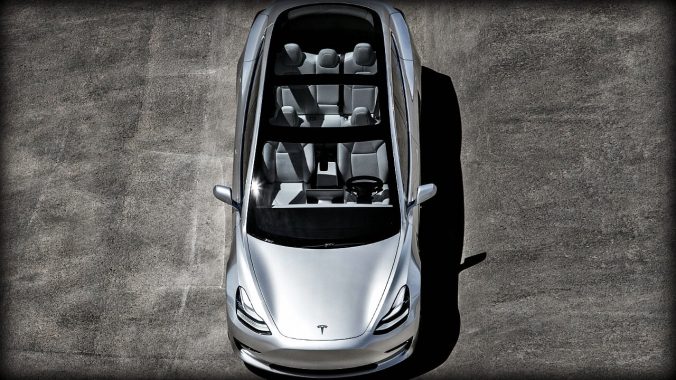The Tesla Model 3 is changing the auto industry as we know it. It’s a relatively affordable and attractive mass-market electric car that has taken the world by storm. It was announced on March 31, 2016 and deliveries to non-employee customers will start in October. This video is my complete guide to the Tesla Model 3 so you can learn all about it in case you’re trying to decide if it’s right for you, and I’ll also explain why I chose the Model 3 to be my next car.
Tesla is not just a car manufacturer. They’re mainly a tech company with a heavy focus on energy innovation. Their official mission is to accelerate the world’s transition to sustainable energy.
The Model 3 is Tesla’s newest addition to their all-electric vehicle lineup which now consists of the Model S (premium sedan), Model X (premium SUV), and now the Model 3 (smaller, more basic sedan for mass market). The Tesla Model 3 has sparked a lot of demand across the entire globe.
One of the biggest selling points for all Teslas including the Model 3 is Autopilot. This is a combination of drive-assisting software combined with 8 cameras built into the car that provide 360 degrees of visibility around the car, 12 ultrasonic sensors allow for detection of objects, and a forward-facing radar that provides additional data and is able to see through rain, fog, dust and even the car ahead.
Enhanced Autopilot costs $5,000 for the Model 3 and adds these new capabilities to the Autopilot experience. Your Tesla will match speed to traffic conditions, keep within a lane, automatically change lanes without requiring driver input, transition from one freeway to another, exit the freeway when your destination is near, self-park when near a parking spot and be summoned to and from your garage.
Autopilot is the precursor to what will eventually become full self-driving cars (which costs another $3,000 and requires the $5,000 EAP). The hardware required for full self driving comes standard on all new Tesla vehicles, but of course until the software is validated and legalized, the hardware is currently only used for Enhanced Autopilot.
Other than Autopilot and future full self-driving capability, I think the biggest factor for Tesla’s success and what separates them from all the other electric cars is their Supercharger network. The Tesla Supercharger network enables long distance travel when you’re in an electric car.
Superchargers are like gas stations for Teslas. It’s the world’s fastest charging station. With the Model 3 standard battery you can get 130 miles of range per 30 minutes of charge at a Supercharger, and with the Long Range option you can get 170 miles of range per 30 minutes of charging at a Supercharger.
Tesla designed the Model 3 with one thing in mind: simplicity. This car definitely strikes a cord with minimalism. Sometimes less is more, and in my opinion, simplicity wins.
To make up for the lack of physical buttons, the 15” touchscreen display in the center is really the main control hub of the entire car. It serves as the speedometer, so your speed will display in the top left of the screen. The touch screen also serves as your way of controlling the air vent. The Model 3 just has one long air vent across the dash, and using the touch screen you can manipulate where you want the air to come out of. The screen also controls the radio, music streaming, GPS navigation, and more.
The Model 3 doesn’t come with a key fob, but instead it comes with an NFC keycard. To unlock the car, tap the card to the B-pillar and tap between the front seats to start the car. This keycard is actually the backup method to unlocking and starting the car. The main way will be done through a unique Bluetooth signal from your smartphone that will unlock your car as you approach it, and then automatically start it when you get inside.
The Model 3 has built-in WiFi so when it’s charging at home, it will be connected to your WiFi and will automatically download free software updates as Tesla releases them. This is what makes Tesla ownership really enticing for me because with software updates, the car is constantly improving without having to add any hardware.
Not only did Tesla make this car simple because they needed to produce them as fast as possible to keep up with demand and to also keep them affordable, but the overall minimalist nature of the car plays into the fact that this car was designed to become a self-driving car at some point in the future.
I think the Tesla Model 3 is the iPhone 3G of cars. It has everything needed to move the auto industry forward to sustainable energy and new technology, but also keeps the excitement and sleekness of fast sporty cars from the past.
$7500 EV Tax Credit (US): https://www.irs.gov/businesses/plug-in-electric-vehicle-credit-irc-30-and-irc-30d
My Tesla Project Loveday submission:
Reserving my Tesla Model 3 (vlog)
